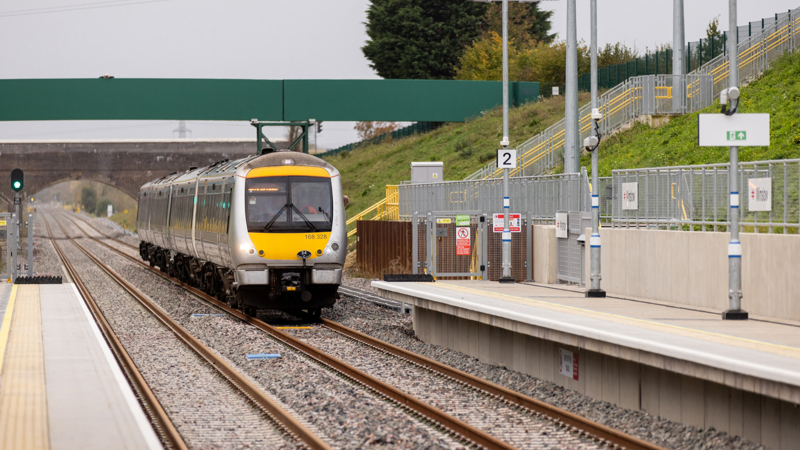
Rail Minister Lord Hendy has told MPs on the Transport Select Committee that he is in favour of discontinuous electrification on the East West Rail line.

Rail Minister Lord Hendy has told MPs on the Transport Select Committee that he is in favour of discontinuous electrification on the East West Rail line.
Hendy told the committee that he thought it was a “brilliant solution” to the issue, adding: “Having lived through the Great Western electrification upgrade, which was extraordinarily expensive and probably over-specified, I think anything which looks at electrification on a simpler, more practical way is absolutely fabulous.”
His comments come after EWR announced in November that it was conducting a public consultation on plans for the new line between Bedford and Cambridge, as well as improvements to the line between Bletchley and Bedford.
Those plans include not fully electrifying the line between Bedford and Cambridge and placing an order for hybrid-electric trains. The consultation is due to close on January 24.
The Department for Transport is believed to be worried about overall cost for the project, in the light of other rail infrastructure projects running over budget. Its most recent cost projections estimated that the new line and upgrades would cost £7 billion, with the National Audit Office warning last year that its costs may outweigh its benefits.
However, the plans for discontinuous electrification have been criticised within the industry. This includes Network Rail, which RAIL understands will request that the route be fully electrified when it responds to the consultation in January.
NR will argue that discontinuous electrification will harm growth of rail freight, at a time when the government is looking for a significant modal shift to rail by 2040, as well as not easing capacity on the surrounding routes.
A Network Rail spokesperson confirmed that its consultation response was being drafted.
They added: “Rail freight plays a huge role in the economy of the country, along with making transport more sustainable, and we are keen that it is considered as further plans are developed.”
Noel Dolphin, Head of UK Projects at electrification company Furrer+Frey, said the decision on discontinuous electrification was a case of short-termism.
“It may well be cheaper at the outset. However, electric railways are cheaper over its lifetime,” he said.
“It makes it more difficult over time to correct what you’ve done before. For all the things that EWR is setting out to do, it really needs to be continuously electrified.”
Many in the rail freight industry want to see a longer-term strategy for electrification on EWR. One source told RAIL that if it wasn’t possible to fully electrify the line, then capacity could be freed up by targeting sections that give a better performance for the line.
“We would want to see any likely congested parts of the future line or any gradients to be targeted for electrification, to deliver broader performance and capacity benefits,” a Freightliner manager told RAIL.
Understandably, for rail freight, many of the major players are keen to see EWR have end-to-end use of electric freight traction, especially given the current fears that rail freight is being overlooked under the new government.
Sources told RAIL that the bare minimum is to ensure that the line is ‘freight capable’ so that bi-mode or tri-mode locomotives could run on the route.
However, in the current proposed set-up, freight companies are concerned that insufficient consideration has been given to ensuring there is enough power for the locomotives to draw current from the overhead wires.
Given capacity concerns across the network, any additional capacity should be welcomed, argues trade body Logistics UK.
Senior Policy Advisor Ellis Shelton said: “The proposed scheme will enable up to 14 new freight services in each direction, which would do the job of an estimated 250,000 lorry journeys every year.
“Considering rail freight produces 76% less CO2 per tonne than road transport, rail has a massive role to play in helping the UK reach its net zero targets.”
Login to continue reading
Or register with RAIL to keep up-to-date with the latest news, insight and opinion.


















Login to comment
Comments
No comments have been made yet.